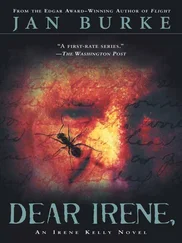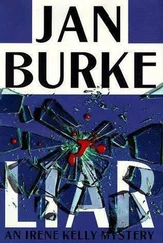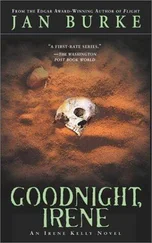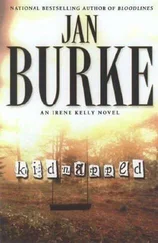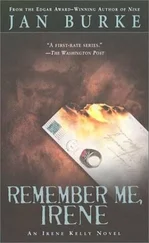Three weeks later, much to the horror of the jerks who lived across the street, a rather obscene directive appeared on their lawn, spelled out in dead grass letters. Alas for these evil neighbors, the Suburban Avenger had succeeded once again…
I looked up from my bowl of cornflakes and glanced across the street, wondering-just wondering, mind you-if I could get away with it.
In every nearly perfect suburban neighborhood, there is the family that makes it “nearly” instead of “perfect.” In ours, it was the Nabbits. You could find the Nabbit house without a street number. I would sometimes use its distinctive features to guide other people to my own home. “We live across the street from the house with the pick-up truck parked on the lawn,” I’d say. Or, “Look for the old mattress propped up against the side of the garage, then pull into the driveway directly opposite the box springs.”
Sarah Cummings, who owned the pristine property to the right of the Nabbits, had warned us about these troublemakers from the day we moved into the neighborhood. “I call them the ‘Dag Nabbits,’” she said. “Nola Nabbit is a tramp. You watch. If Napolean’s army had been as big as the one that has marched through Nola’s bedroom doors, they’d be speaking French in Moscow today. Daisy, the little girl, is okay. But the kid! He’s a mess.”
The kid was Ricky. Ricky Nabbit, I soon learned, was a frequent guest of the California Youth Authority. He had a seasonal habit of breaking into houses, shoplifting, and other purely selfish acts.
“As long as it’s baseball season,” Sarah told me, “We won’t have any trouble. He’s a baseball nut. But every winter”-here, Sarah shivered-“he robs somebody.”
When Sarah heard that I would be working out of my home, she was elated. “Maybe you can help keep an eye on things,” she said. Specifically, she meant Ricky Nabbit.
We had moved into our home in the spring of the year when Ricky turned fourteen. I would watch him walk home from baseball practice at the nearby park. Skinny, clean cut, and looking smartly athletic in his uniform, he wore a glove so often, I had visions of him eating with the mitt on his left hand.
Sometimes I would see Ricky sitting on the front porch, oiling his glove, while from inside the house, I heard his mother and her boyfriend shouting obscenities at one another at the top of their lungs. Even with the doors and windows closed, we could hear them. This was especially true during the months when Clyde Who Parks on the Front Lawn reigned over the household.
Clyde was, perhaps, no worse than his predecessors. No more a loudmouth lowlife than Bellamy the Belcher (whose wide-ranging eructative skills included saying the word “breast” as he burped) or Horace the Hornblower (who honked his car horn at all hours, as a mere introduction to rolling down his window and hollering “Nola! Get your ass out here!”). These were not their real names, of course, but my husband and I used this system to refer to them when lamenting our luck.
Nola stayed with Clyde for most of the season, but broke up with him just before the World Series with a world class drunken brawl in the middle of the street. Nola got a shiner, Clyde got the boot.
Our doorbell rang a few days later, and when I looked out through the peephole, I was surprised to see Daisy standing on our front porch. She had long blond hair and beautiful green eyes, but was shy and slightly overweight. She was carrying a big cardboard box full of canisters of candy.
She stammered out a good afternoon and asked if I would buy some candy for her church school fund-raiser.
“Church school?” I asked.
She turned a deep red, and stepped back. If she had been a turtle, I would have been looking at nothing but a shell. I waited, tried to smile my encouragement. She swallowed hard and then explained that she attended a private school operated by a church. The church she named was a conservative Christian sect.
Even though her church school was part of a denomination other than our own, I bought a canister, telling myself that I was doing my bit for ecumenism and good neighborly relations.
I was leaving the house some hours later and saw her returning home, still carrying her box, looking weary and somewhat dejected. I noticed that the box was still nearly full.
“Daisy!” I called.
You would think I had fired a shot over her head. She halted, shrank back, and nearly dropped the box. As I crossed the street toward her, her eyes grew wide.
I stopped a few feet away from her. Out of striking distance. She relaxed a little. “I just remembered,” I said, “that I need some gifts for some clients. The candy would be perfect. Could I buy more?”
She looked at me in complete puzzlement.
“Perhaps those ones you have with you have been spoken for?”
She shook her head. “N-n-no,” she said, finally coming out of her daze. “No, ma’am, they aren’t.”
I bought the rest of the box, and took it home. She thanked me politely and stared after me as I crossed the street. By the time I had set the candy inside my foyer and returned to my car, she had disappeared inside her house.
“What the hell are you doing buying all this candy?” my husband asked that night. “I thought you were trying to lose weight.”
“You’re so gallant,” I said. “Now, by my count, there’s a missing canister. Are you going to share any of it?”
He grinned and went to retrieve his pirated treasure, then unwrapped the foil covering on a chocolate morsel and hand-fed it to me. “Mmmm,” I said.
“I agree,” he said. “But are we converting to a new religion?”
I explained what had happened with Daisy.
“You,” he said, “are too easy.”
“Gallant again.”
A week later, Ricky came by and asked if he could wash our car. “Sure,” I said, and paid him a dollar more than he’d asked, on the theory that honestly earned money might start to appeal to him. He washed our car every weekend until the rains started in November.
He was always charming and polite. My husband agreed that we were better off making a friend of this kid than an enemy. Sarah Cummings told me I’d live to regret my kindness.
With the November rains, the Nabbit’s lawn grew taller; fast food containers littered their front yard. Their dog, a mangy Bassett hound that smelled as if it had never been bathed, continued to use neighbors’ lawns as his outhouse. (If American factories had the output that dog did, we’d be the most productive country in the world.) Nola stayed up late and laughed louder than the music she played. When she left for work, the hound bayed all day.
The Suburban Avenger knew it was an old trick. She placed the paper bag filled with gathered dog droppings on the front porch, lit it on fire, rang the doorbell and ran. With glee, she watched Nola Nabbit stomp the fire out. You can use old tricks on some dogs, the Avenger mused…
The Cummings put up a low wrought iron fence and planted Italian Cypress on the side that bordered the Nabbits. The Fredericks, on the other side, did the same, but planted rose bushes. The Cummings called the police whenever the music was played after ten o’clock. Nola started turning the radio off exactly at ten, and shouting “Good night, you old bitch!” toward the Cummings’ house.
Around Thanksgiving, Mrs. Ogden, a seventy-year-old woman who lived next door to us, asked me to keep an eye on her house while she paid an overnight visit to her granddaughter. When she returned, she discovered that her home had been burgled; her jewelry, her stereo, a small television set and her secret stash of cash were gone. I felt guilty, even though Mrs. Ogden didn’t blame me in the least. “You have to sleep sometime, honey,” she said. “I wasn’t hiring you as a guard. Who knows? Maybe I’ll get some of it back. I etched my driver’s license number on the stereo and T.V.”
Читать дальше

